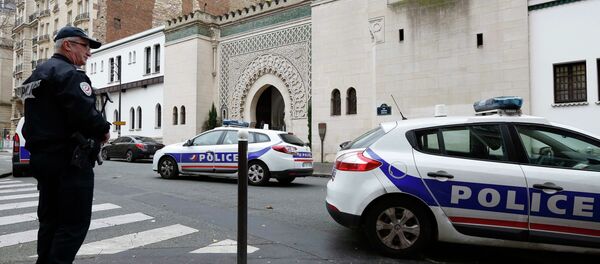Rob Wainwright recently told MPs that his agency had received the names of 2,500 suspected potential terrorists living in Europe who had gone abroad.
Speaking to MPs on the Home Affairs Select Committee following the terror attack in Paris, Wainright said that as many as 500 people from Britain and 1,000 from France had travelled to Syria.
"Clearly, we're dealing with a large body of mainly young men who have the potential to come back and have the potential or the intent and capability to carry out attacks like those we have seen in Paris in the last week."
On the 11th anniversary of the Madrid train bombing in Spain that killed 191 people, the European Commission hosted the European Day of Remembrance of the Victims of Terrorism.
Today we remember and pay homage to victims of #terrorism in Europe and across the world. http://t.co/aOTGDIGzmj #11M pic.twitter.com/CVsnQ7ZL5y
— European Commission (@EU_Commission) March 11, 2015
Victims of terrorism and counter-terrorism experts shared their experiences and the lessons learned from working on tackling terrorism at the root and using victims' testimonies to prevent radicalisation.
Maureen Norton is in Brussels with the Foundation for Peace. Maureen lost her brother Terrence Griffin in an IRA bomb attack on a bus carrying soldiers and their families on the M62 in 1974.
At City Hall in London meeting @MayorofLondon team. Discussing 7/7 10th Anniversary. Making sure survivors at centre. pic.twitter.com/HgwjSlNjhw
— Survivors for Peace (@survivors4P) March 10, 2015
Terry O'Hara, project manager for Survivors for Peace at the foundation told Sputnik News that it's critical that people who have experienced terrorism have their voices heard.
"The common feeling is that survivors don't want what happened to them — to happen to other people. Following the 7/7 attack in London, survivors gave robust feedback about how they were treated by the first responders and emergency services. By listening to their experiences, additional grief can be avoided in the future."
In London, head of Europol Rob Wainright told MPs the threat of terrorism was the most serious since the 9/11 terror attack in the US.
According to Britain's security services, around 600 extremists are among the many Britons who have traveled to Syria to join ISIL, where many innocent Britons have also been murdered. However, the number is suspected to be more like 2000.
Danny Makki, a Syrian political activist and researcher in Middle Eastern extremist groups, says Britain has the worst record in Europe for the number of foreign fighters in Syria.
"Around 250 of these extremists have already returned, this is creating a real fear in the security services in the UK," said Makki.
It's believed as many as 5,000 people from across all of Europe have travelled to Syria to fight with extremists.





